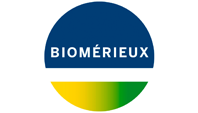bioMérieux confirms its commitment to the fight against Hospital Acquired Infections
15 Februar, 2007bioMérieux, a global leader in the field of in vitro diagnostics, confirms its commitment to the fight against Hospital Acquired Infections with the launch of three new products.
bioMérieux announced today the launch of three new products in the fight against nosocomial infections:
"Microbiology is bioMérieux's major area of expertise, internationally recognized for over 40 years. With this extensive offer, bioMérieux commits itself to microbiology laboratories and fulfills their expectations by allowing them to play a key role in the fight against nosocomial infections, a major concern for all healthcare professionals and hospitalized patients. We are very excited by these launches as Hospital Acquired Infections are one of the six strategic diseases highlighted in our strategic plan", affirms Stéphane Bancel, Chief Executive Officer, bioMérieux.
chromID™ VRE and chromID™ ESBL are innovative chromogenic culture media that ensure the direct, reliable and rapid isolation of multi-resistant bacteria (Vancomycin Resistant Enterococci (VRE) and Extended-Spectrum Beta-Lactamase (ESBL)-producing enterobacteria). These two products are intended for the screening of patients colonized by these bacteria, thus making it possible to take the necessary measures to avoid their spread: isolation of colonized patients and strengthening of hygiene measures.
chromID™ VRE was developed for the screening as well as direct and conclusive identification of E. faecium and E. faecalis with acquired resistance to vancomycin.
chromID™ ESBL makes it possible to screen ESBL-producing enterobacteria, in other words, bacteria resistant to many antibiotics.
Vancomycin Resistant Enterococci and ESBL-producing enterobacteria are excellent examples of problematic resistances to antibiotics otherwise considered to be very effective.
These media are particularly innovative and have no equivalent on the market at this time for the direct and specific screening of those bacterial groups responsible for healthcare-associated infections. They are a valuable contribution to the range of multi-resistant bacteria detection tests initiated in May 2005 with the launch of chromID™ MRSA for the screening of Methicillin-Resistant Staphylococcus aureus (MRSA), one of the principle bacteria involved in nosocomial infections, due to its frequency as well as the seriousness and the cost of resulting infections. chromID™ MRSA has considerably simplified its detection, enabling more rapid implementation of adapted prevention measures. They are now available worldwide, outside of the United States.
Moreover, bioMérieux is completing its offer in the fight against nosocomial infections with the launch of its DiversiLab platform in Europe and Asia. This instrument, resulting from the acquisition of the company Bacterial Barcodes, Inc., makes molecular microbial genotyping possible in four hours, whereas traditional, largely manual techniques are much more time-consuming. DiversiLab offers faster, more precise solutions that are easier to implement in order to determine the source of an outbreak, understand how it spreads, take the necessary steps to control it and monitor its epidemiology. Thanks to this automated system, genotyping is now accessible on a daily basis for more effective control of nosocomial infections. DiversiLab is also available in the United States.
About Hospital Acquired Infections
Nosocomial infections are a serious public health issue today. They are a major cause of morbidity and mortality. These pathologies result in a considerable increase in healthcare expenses, despite the widely-recognized efforts of public health authorities to keep them under control.
Almost two million nosocomial infections are detected every year in the United States, 80,000 of which result in the patient's premature death. Their cost represents 5 billion U.S. dollars per year (WHO figures, 2005).
Five million hospital acquired infections are detected in Europe every year, 135,000 of which end in death (Suetens C, IPSE, 2006).
Almost 1.4 million people worldwide suffer from a nosocomial infection everyday (WHO figures, 2005).
bioMérieux has been a major player in the fields of microbiology and infectious diseases for over 40 years. The company has developed world-renowned expertise thanks to major innovations in the areas of culture, identification, antibiotics susceptibility testing and bloodculture, which have led to more rapid and more reliable diagnoses of infectious diseases and the implementation of more well-adapted and earlier treatments.
bioMérieux is now in a position to become a major contributor to the fight against hospital-acquired infections. The goal of a company at the service of microbiology laboratories, public health services and health professionals in general is to provide clinical practitioners with the right information at the right time to facilitate medical choices by offering them:
- a wide and well-adapted range of products to fight these infections;
- recognized expertise in microbiology: a leader in identification and antibiotics susceptibility testing and a pioneer in chromogenic media.

